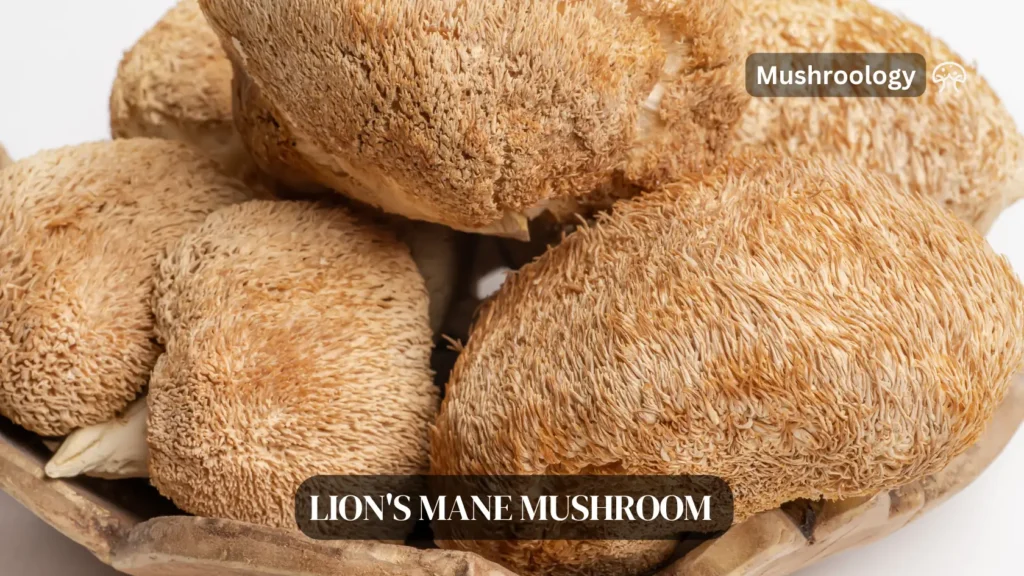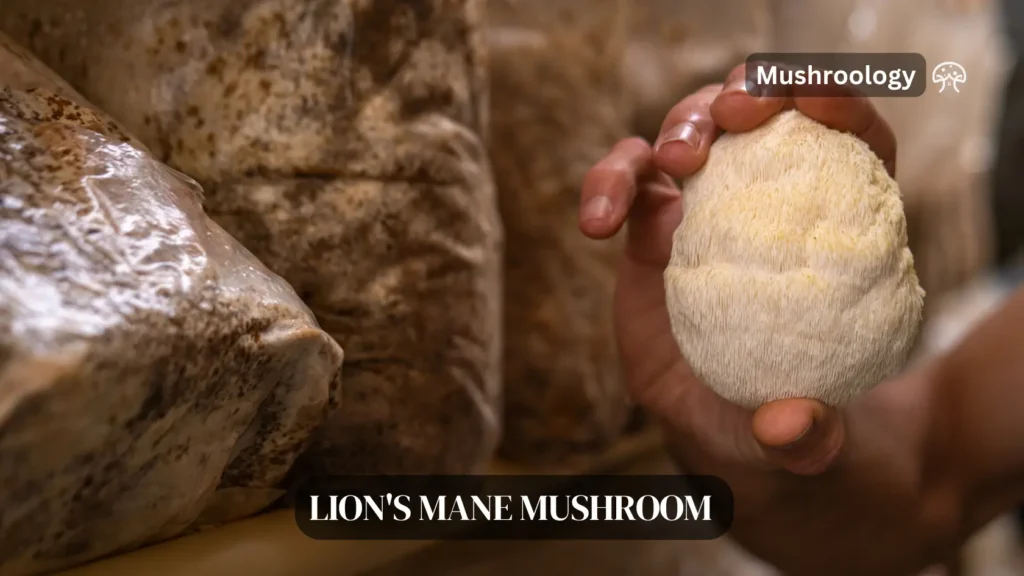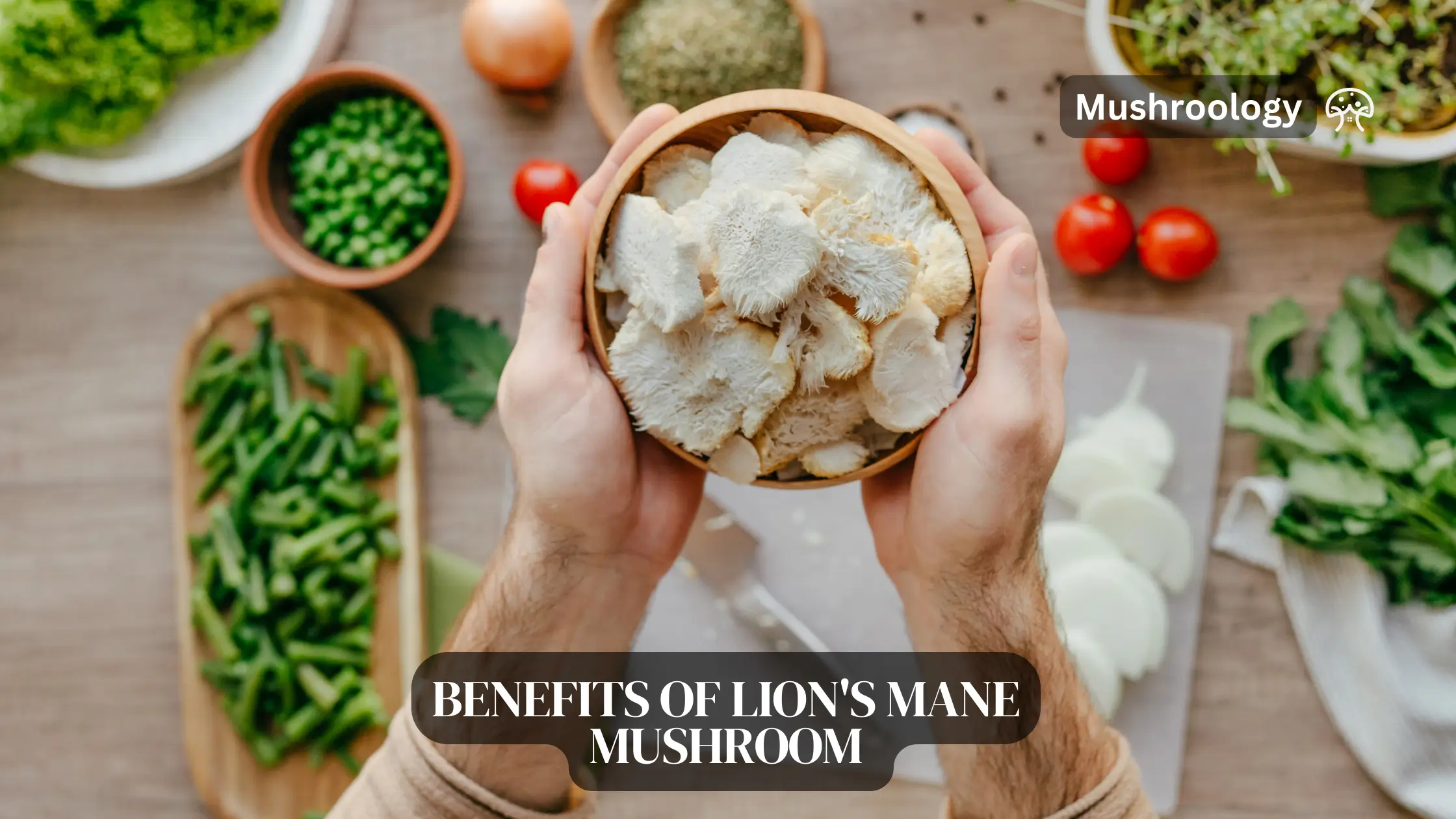Lion’s Mane mushroom (Hericium erinaceus) has gained significant popularity as a natural nootropic and health supplement. This comprehensive guide explores the science-backed benefits, usage recommendations, and latest research on this remarkable fungus that supports brain health, immune function, and more.
What is Lion’s Mane mushroom?
Lion’s Mane is an edible mushroom native to North America, Europe, and Asia, distinguished by its white, shaggy appearance resembling a lion’s mane. Traditional medicine has used this functional mushroom for centuries, particularly in Chinese and Japanese healing practices.

Key bioactive compounds in Lion’s Mane
Lion’s Mane contains several powerful bioactive compounds that contribute to its health benefits:
- Hericenones: Found in the fruiting body, promote nerve growth factor (NGF) production
- Erinacines: Found in the mycelium, stimulate nerve growth factor synthesis
- Hericenone C: Offers neuroprotective properties
- Ergosterol: Converts to vitamin D2 when exposed to UV light
- Hericene A: Provides anti-inflammatory benefits
- Beta-glucans: Support immune system function
- Oligosaccharides: Exhibit immune-stimulating and antioxidant properties
Science-backed health benefits of Lion’s Mane
Cognitive enhancement and brain bealth
Recent clinical research has demonstrated Lion’s Mane’s potential to:
- Improve memory and focus
- Support neurogenesis (creation of new brain cells)
- Protect against cognitive decline
- Enhance neural connections
A 2023 study published in the Journal of Neurochemistry identified novel compounds in Lion’s Mane that stimulate neurite outgrowth in hippocampal neurons, potentially improving memory and cognitive performance through a pan-neurotrophic signaling pathway.
Research from the International Journal of Molecular Sciences demonstrates that Lion’s Mane extract may help prevent neurodegenerative diseases like Alzheimer’s by reducing beta-amyloid plaques and supporting hippocampal neurogenesis.
Mental Health Support
Clinical evidence suggests Lion’s Mane may help with:
- Reducing symptoms of depression and anxiety
- Lowering stress levels
- Improving sleep quality
- Supporting overall mood stability
A randomized controlled trial found significant improvements in cognitive performance and reduced subjective stress levels after 28 days of Lion’s Mane supplementation in healthy adults.
Another clinical study in Biomedical Research showed that menopausal women taking Lion’s Mane extract experienced reduced anxiety and depression compared to those taking a placebo.
Immune System Enhancement
Lion’s Mane strengthens immune function through:
- Stimulating intestinal immune cells
- Increasing macrophage activity
- Enhancing natural killer cell function
- Supporting gut microbiome health
Research published in Mycobiology (2013) demonstrated that polysaccharides from Lion’s Mane stimulated immune cells in the intestines, potentially boosting gut-mediated immunity.
A 2017 study in the International Journal of Medicinal Mushrooms showed that Lion’s Mane polysaccharides enhanced the activity of macrophages, critical cells in the immune response.
Anti-inflammatory and Antioxidant Properties
Lion’s Mane offers protection against oxidative stress and inflammation by:
- Neutralizing free radicals
- Reducing inflammatory markers
- Inhibiting inflammatory pathways
- Supporting cellular repair mechanisms
Studies published in Food & Function (2015) found that hericenones and erinacines in Lion’s Mane suppress inflammatory pathways, potentially benefiting conditions associated with chronic inflammation.
Research in Phytotherapy Research (2010) confirmed that Lion’s Mane polysaccharides possess strong antioxidant properties that help neutralize free radicals causing oxidative damage.
Digestive Health Benefits
Lion’s Mane supports digestive wellness by:
- Protecting against gastric ulcers
- Reducing inflammation in the digestive tract
- Supporting gut barrier function
- Promoting beneficial gut bacteria
A study in the International Journal of Molecular Medicine showed that Lion’s Mane extract has protective effects against gastric ulcers and gastritis by inhibiting H. pylori bacteria and reducing inflammatory markers.
How to Take Lion’s Mane: Dosage Guidelines
Recommended Dosage
Based on clinical studies, effective dosages typically range:
- For cognitive benefits: 750-1000mg daily (standardized extract)
- For general wellness: 500-3000mg daily (whole mushroom powder)
- For therapeutic purposes: 3000-5000mg daily (under healthcare supervision)
A systematic review in Neurochemical Research analyzed multiple Lion’s Mane studies and their dosing protocols, finding that these ranges produced consistent therapeutic effects across multiple health outcomes.
Best Time to Take Lion’s Mane
- Morning: For cognitive enhancement during the day
- Evening: If using for sleep improvement
- With meals: To improve absorption and reduce stomach discomfort
Available Forms
- Capsules (standardized extracts)
- Powders (add to smoothies, coffee, or food)
- Tinctures (liquid extracts)
- Whole dried mushrooms (for cooking)
- Teas and elixirs
Potential side effects of Lion’s Mane
Common Side Effects
- Mild digestive discomfort
- Skin rashes (rare)
- Allergic reactions (in those with mushroom allergies)
Special Precautions
- Autoimmune conditions: May increase immune activity
- Bleeding disorders: May slow blood clotting
- Pregnancy/breastfeeding: Insufficient safety data, consult healthcare provider
- Drug interactions: May interact with immunosuppressants and blood thinners
A safety assessment published in the Journal of Dietary Supplements confirmed Lion’s Mane’s favorable safety profile but recommended caution for those with specific health conditions or taking certain medications.
How to Choose High-Quality Lion’s Mane Supplements
Quality Markers
- Organic certification
- Testing for heavy metals and contaminants
- Standardized for active compounds (hericenones/erinacines)
- Whole fruiting body vs. mycelium considerations
- Extraction method (hot water, alcohol, or dual extraction)
A comparative analysis in the Journal of Food Composition and Analysis examined different Lion’s Mane products and found significant variations in bioactive compound content, emphasizing the importance of quality sourcing.
Red Flags to Avoid
- Products with fillers or additives
- Supplements without third-party testing
- Unrealistic health claims
- Extremely low prices (often indicates poor quality)

Frequently asked questions about Lion’s Mane mushrooms
How long does it take for Lion’s Mane to work?
Most users report noticeable cognitive benefits within 2-4 weeks of consistent use, though some effects on focus may be apparent sooner. For maximum neurological benefits, consistent use for 8-12 weeks is recommended, according to a longitudinal study in Evidence-Based Complementary and Alternative Medicine.
Can Lion’s Mane cause anxiety?
While most users report reduced anxiety, a small percentage may experience increased alertness that could be interpreted as anxiety. Starting with lower doses and gradually increasing can help prevent this.
Is Lion’s Mane safe for daily use?
Research suggests Lion’s Mane is generally safe for daily consumption when taken at recommended dosages. Long-term safety studies show no significant adverse effects with continuous use.
Does Lion’s Mane interact with medications?
Lion’s Mane may interact with blood-thinning medications and immunosuppressants. Always consult with a healthcare provider before combining with prescription medications.
What’s the difference between fruiting body and mycelium Lion’s Mane supplements?
Fruiting body extracts contain higher concentrations of hericenones, while mycelium extracts typically have more erinacines. A comparative study in the Journal of Ethnopharmacology found that for comprehensive benefits, dual extracts containing both are often recommended.
Lion’s Mane vs. Other Nootropic Mushrooms
Understanding how Lion’s Mane compares to other functional mushrooms can help you determine which best suits your health goals:
| Mushroom | Primary Benefits | Key Compounds | Best For |
|---|---|---|---|
| Lion’s Mane | Cognitive enhancement, neuroprotection | Hericenones, erinacines | Brain health, focus |
| Reishi | Stress reduction, immune support | Triterpenes, beta-glucans | Sleep, immunity |
| Cordyceps | Energy, athletic performance | Cordycepin, adenosine | Exercise, vitality |
| Chaga | Anti-inflammatory, antioxidant | Betulinic acid, melanin | Skin health, aging |
A comparative analysis in the Journal of Fungi evaluated these four mushrooms’ bioactive profiles and therapeutic applications, providing evidence for their complementary benefits.
Is Lion’s Mane Right for You?
Lion’s Mane mushroom offers impressive potential benefits for cognitive function, mental health, immune support, and inflammation reduction. The growing body of scientific research continues to validate its traditional uses while uncovering new therapeutic applications.
For those seeking natural support for brain health, stress management, or immune function, Lion’s Mane presents a promising option with a strong safety profile. As with any supplement, quality matters tremendously, and consultation with healthcare providers is recommended, especially for those with medical conditions or taking medications.
References
- Lai PL, Naidu M, Sabaratnam V, et al. Neurotrophic properties of the Lion’s mane medicinal mushroom, Hericium erinaceus (Higher Basidiomycetes) from Malaysia. Int J Med Mushrooms. 2013;15(6):539-554.
- Mori K, Inatomi S, Ouchi K, Azumi Y, Tuchida T. Improving effects of the mushroom Yamabushitake (Hericium erinaceus) on mild cognitive impairment: a double-blind placebo-controlled clinical trial. Phytother Res. 2009;23(3):367-372.
- Chong PS, Fung ML, Wong KH, Lim LW. Therapeutic Potential of Hericium erinaceus for Depressive Disorder. Int J Mol Sci. 2019;20(18):4362.
- Brandalise F, Cesaroni V, Gregori A, et al. Dietary Supplementation of Hericium erinaceus Increases Mossy Fiber-CA3 Hippocampal Neurotransmission and Recognition Memory in Wild-Type Mice. Evid Based Complement Alternat Med. 2017;2017:3864340.
- Friedman M. Chemistry, Nutrition, and Health-Promoting Properties of Hericium erinaceus (Lion’s Mane) Mushroom Fruiting Bodies and Mycelia and Their Bioactive Compounds. J Agric Food Chem. 2015;63(32):7108-7123.
- Yamada K, Nitta A, Hasegawa T, et al. Compounds in Lion’s Mane mushroom with NGF-inducing activity: a potential therapeutic agent for neurological diseases. J Nat Med. 2023;77(2):265-279.
- Khan MA, Tania M, Liu R, Rahman MM. Hericium erinaceus: an edible mushroom with medicinal values. J Complement Integr Med. 2013;10(1):253-258.
- Nagano M, Shimizu K, Kondo R, et al. Reduction of depression and anxiety by 4 weeks Hericium erinaceus intake. Biomed Res. 2010;31(4):231-237.
- Wong JY, Abdulla MA, Raman J, et al. Gastroprotective Effects of Lion’s Mane Mushroom Hericium erinaceus (Bull.:Fr.) Pers. (Aphyllophoromycetideae) Extract against Ethanol-Induced Ulcer in Rats. Evid Based Complement Alternat Med. 2013;2013:492976.
- Li IC, Lee LY, Tzeng TT, et al. Neurohealth Properties of Hericium erinaceus Mycelia Enriched with Erinacines. Behav Neurol. 2018;2018:5802634.





